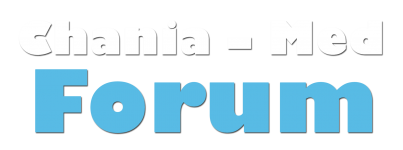
T.I.C.L.S. is a broader education platform aiming to develop programs that disseminate information, stimulate dialogue, and build up leadership for perceptive people of all ages.
T (+30) 2108655979
Email: info@ticls.org
The International Center for Leading Studies
I. Drossopoulou str. 160A, 11256 Athens, Greece
The political and economic environment of our world is changing but, Economy, Energy, Politics & Power are the four interrelated major issues that remain crucial in everybody's every day life, one way or another.
The 1992 "It’s the economy, stupid!" phrase of James Carville, Bill Clinton’s strategist, to describe the No. 1 issue facing the country at the time, still holds true today, yet with many interrelated factors. A new term has been introduced, "econocracy". The recent U.S.A. elections have triggered an interesting discussion on the "vote value".
Discussions at the Forum refer to these contemporary issues at local, national and global levels.
The annual 4 day event, always set for the last weekend of July, focuses on the present-day interrelated issues of geopolitics, energy, economy, conflict prevention, the role of international organizations, and more issues, which are affecting national and international relations, societies and ultimately, the human security of citizens.
Expert prominent leaders from governments, the business community, academia and international organisations are invited for a frank and provocative discussion, which can provide an insight on the imminent future of economic geopolitical state of the international community.
The Forum operates under the Chatham House Rule, in order to promote free and frank discussion and the disinterested sharing of information for the mutual benefit of its participants.
Extensive discussion opportunities and networking are also encouraged during the social program.
The time and location, at the beautiful town of Chania, Crete, provide the opportunity to combine work with a summer vacation at a top spot and the most important strategic position in the sensitive region of the Mediterranean Sea.
The Forum is open to the public upon invitation, following individual Forum registration.
A registration fee is required.
Forum Menu
Speakers' Quotes
The problem is that we have more than one crisis, and we are curing only one of them. So, when analysis is wrong, curing must be wrong
The visionary leader and statesman leads by persuasion and inspiration, not by force or compulsion. Above all, the visionary leader and statesman must possess what Max Weber called CHARISMA
Cold war - atomic war was a threat, but was never meant to happen, it ended when democracy prevailed. Westerns were happier and more self-confident, because they had individual approach to life. Democracy, usually established during peace, which makes it the best thing invented so far. Furthermore, he pointed out that a pure democracy doesn’t work today anymore, We have so-called-democracy”.
Due to the fact that Mr. Mohamed Morsi didn’t do what the people were expected from him and didn’t make any “steps forward”, they needed to change this situation immediately
Track II diplomacy is relatively new as a concept. We talk about it as a part of conflict management today, but also as a shaper of society – Track II diplomacy is seen as a tool to solve the conflicts within a society or even a region. In this sense, Track II diplomacy is a specific kind of informal diplomacy in which non-officials - intellectuals, social activists, military representatives, religious thinkers, etc – engage in dialogue with the aim of finding solutions to problems affecting society














